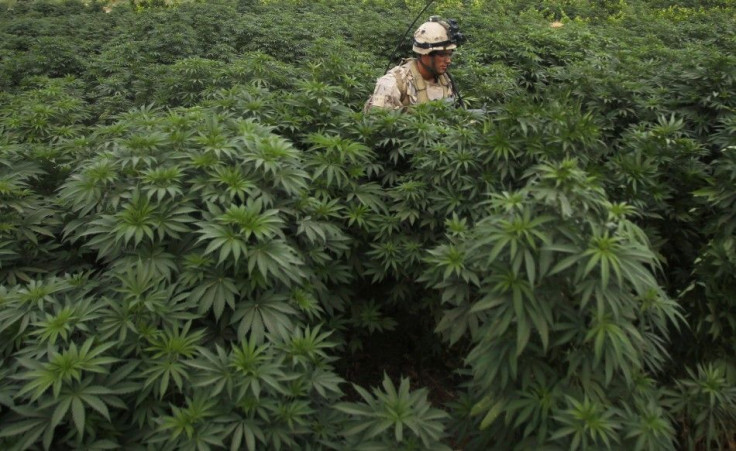Marijuana Bill Stands 'Snowball's Chance in Hell' in Congress

The first-ever Congressional bill to let states legalize marijuana is a bipartisan effort, and the group of police and judges who make up LEAP, Law Enforcement Against Prohibition, are in full support of it.
I'm thrilled, and a lot of people are excited about this, said Neill Franklin, executive director for LEAP. The reason I say this is because it has been a real struggle to get our policymakers on board.
Under the bill, HR 2306 - introduced Thursday by U.S. Rep. Barney Frank, D-Mass, and U.S. Rep. Ron Paul, R-Texas - states could legalize, regulate, tax, and control marijuana without federal interference, limiting the government's role in marijuana enforcement to cross-border or interstate smuggling.
Four House Democrats are co-sponsors: John Conyers of Michigan, Barbara Lee of California, Jared Polis of Colorado and Steve Cohen of Tennessee.
It's wonderful, but look, I'm not delusional. It probably stands a snowball's chance in hell, but it brings the issue to the forefront, Franklin said. A year or two ago, when you brought up the issue of marijuana legalization, it was a joke to everyone. As soon as you would talk about it, people would say, what have you been smokin'? (No pun intended.)
LEAP, founded in 2002, is comprised of current and former members of law enforcement and justice communities who are speaking out about the failures of the United States' existing drug policies - policies, they perceive, as continually failing. What is needed, they say, is a system of regulation and control of substance, which is done by the government, thus removing the power of the black market in marijuana transactions.
Clearly the 'war on drugs' has failed, and nowhere is that more clear than with respect to marijuana. It baffles me that we arrest nearly 800,000 people on marijuana charges in this country each and every year at taxpayer expense when we could instead be taking in new tax revenue from legal and regulated marijuana sales, Franklin said.
Making marijuana illegal hasn't prevented anyone from using it, but it has created a huge funding source that funnels billions of dollars in tax-free profits to violent drug cartels and gangs. More and more cops now agree: Legalizing marijuana will improve public safety.
And this is Franklin's chief concern: saving lives.
Knowing that well over 50 percent of the profits being made by criminals, [legalization] will strike a significant blow to their income stream. It reduces their capital, Franklin said.
I know there is a big financial interest in this time of economic despair (our government could generate a lot of money), but the primary reason for me is that it will give less power to our criminal gangs out there, therefore reducing the number of homicides and reduce the number of other related crimes committed by these organizations. For me, it's about the bodies.
The marijuana proposal coincides with a cascade of reports questioning the now roughly 40-year-old war on drugs. A commission of current and former world leaders released a report arguing that harsh enforcement measures have led to devastating consequences for individuals and societies, and aU.S. Senate report warned that the Obama administration's costly campaign against narcotics trafficking has produced minimal gains. Former U.S. President Jimmy Carter, D-Georgia, who helped to author the former report, also penned an op-ed re-enforcing its contention of the total failure of the present global antidrug effort.
Franklin, a 34-year law enforcement veteran of both the Maryland State Police and Baltimore Police forces, who spent his early career as a narcotics cop, said what the U.S. is doing in its war on drugs doesn't make sense.
There is one thing I didn't know that I learned [working on the street], and it is that people who are addicted to drugs, they really don't care about prison, he said. They care about not getting sick and not missing a dose.
The United States imprisons more people than any other nation, about a quarter of them for drug offenses, and the government has recently considered both drug sentencing reform and the consequences of exploding prison populations . (This prompted the U.S. Supreme Court to recently order California to reduce its prison population by some 32,000; about 30,000 of California's 144,000 prisoners are jailed for drug or marijuana offenses.)
Medical marijuana is permitted in 16 states.
© Copyright IBTimes 2024. All rights reserved.





















